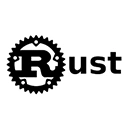Cargo is the official package manager and build system for Rust. It simplifies the process of managing dependencies, building packages, and distributing libraries. This guide will explain how to manage dependencies in Rust using Cargo, including how to add, update, and remove dependencies.
1. Understanding Cargo.toml
When you create a new Rust project using Cargo, a file named Cargo.toml is generated in the project directory. This file contains metadata about your project, including its name, version, authors, and dependencies.
Example of a Cargo.toml File
[package]
name = "my_project"
version = "0.1.0"
edition = "2021"
[dependencies]
serde = "1.0" # Example dependency
Explanation of the Cargo.toml Structure
[package]: This section contains metadata about your package, such as its name, version, and edition.[dependencies]: This section lists the dependencies your project requires. Each dependency is specified with its name and version.
2. Adding Dependencies
To add a dependency to your project, you can manually edit the Cargo.toml file or use the Cargo command line. The following command adds the serde crate as a dependency:
cargo add serde
This command automatically updates the Cargo.toml file to include the serde dependency.
Example of Adding a Dependency
# Cargo.toml
[dependencies]
serde = "1.0" # Added dependency
serde_json = "1.0" # Another dependency
3. Using Dependencies in Your Code
Once you have added a dependency, you can use it in your Rust code. For example, if you added the serde crate for serialization and deserialization, you can use it as follows:
Example of Using a Dependency
use serde::{Serialize, Deserialize};
#[derive(Serialize, Deserialize)]
struct Person {
name: String,
age: u32,
}
fn main() {
let person = Person {
name: String::from("Alice"),
age: 30,
};
// Serialize the person to a JSON string
let json = serde_json::to_string(&person).unwrap();
println!("Serialized: {}", json);
}
Explanation of the Example
- In this example, we use the
serdeandserde_jsoncrates to define aPersonstruct and serialize it to a JSON string. - We derive the
SerializeandDeserializetraits for thePersonstruct, allowing it to be converted to and from JSON. - We then create an instance of
Person, serialize it, and print the resulting JSON string.
4. Updating Dependencies
To update your dependencies to the latest compatible versions, you can use the following command:
cargo update
This command updates the dependencies listed in your Cargo.toml file to the latest versions that match the specified version constraints.
5. Removing Dependencies
If you no longer need a dependency, you can remove it from your project by editing the Cargo.toml file manually or using the following command:
cargo rm serde
This command will remove the serde dependency from your project and update the Cargo.toml file accordingly.
6. Conclusion
Managing dependencies in Rust using Cargo is straightforward and efficient. By utilizing the Cargo.toml file, you can easily add, update, and remove dependencies as needed. This allows you to focus on writing your Rust code while Cargo handles the complexities of dependency management, ensuring that your project remains organized and up-to-date.

